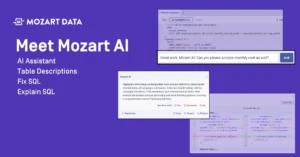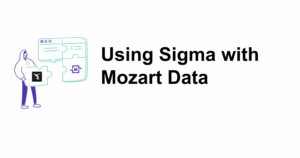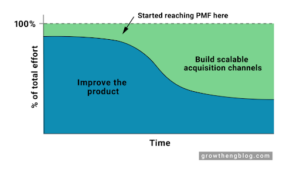We’ve previously covered the right time to hire a data analyst and how to hire the right analyst for your growing team. If you’re not sure about the right time to hire an analyst or how to find the right fit, we recommend starting there.
What we haven’t covered yet is how to interview candidates. It’s important to be able to evaluate these candidates effectively, without wasting a lot of your own team’s valuable time.

Here are the most important skills to look for in an interview, the questions to ask, and what to listen for in your candidates’ answers.
A start-up mentality
Your first data hire has to be a doer. Whether they’re a junior or a senior analyst, they won’t have the luxury of someone to delegate to or additional resources to request.
Interview question: Tell us about a project you’ve worked on.
What to listen for: Look for signs that the person has been hands-on with solving problems and performing tasks at all levels — that no data task is too small or too junior for them. They can talk about the granular details and tasks, as well as the big-picture strategic thinking.
Simplifies complex concepts
The ability to communicate complex concepts in an understandable way is a soft skill that’s often undervalued in more technical roles. It’s important to determine if your candidate understands the importance of communicating results in a way that an end-user or consumer can understand.
Interview question: Tell us about your favorite hobby.
What to listen for: When people are asked to explain something they’re passionate about, you can get a sense of whether they can clearly and plainly explain something. You can gauge whether they have the ability to talk about the micro and the macro details, and the ability to explain complex technical or jargon-heavy concepts to someone with no prior knowledge of the subject.
Or
Interview question: What does the cumulative profit look like made on an Uber/Lyft rider who takes a 10-mile trip to work 15 days per month?
What to listen for: Asking a use-case question like this will help you see if candidates ask any clarifying or follow-up questions. The point of use-case questions is not to get a “right answer,” but to hear how the candidate explains their reasoning and thought process. Can they break down a complex problem into simpler parts?
Sees beneath the words of a question
It’s important to evaluate problem-solving as a soft skill. You’re looking for the candidate who understands what question is being asked beyond what words are being used, so they can find answers. Screen for problem-solving skills by asking candidates to verbally work through logic problems.
Interview question: What’s the chance that we were born in the same month? What’s your rationale for that response?
Or
Interview question: How long do you think the optimal blog post is?
What to listen for: Again, don’t focus on if they got the “right answer.” Instead, listen for how they break down the question to pick up on hints and uncover the underlying sub-questions they’ll need to understand. Their response should tell you about their grasp of logic, creative thinking, and understanding of best practices.
“A good data analyst will approach most business questions by breaking it into an array of sub-questions. As an example from a previous role, I needed to answer an ROI question for a gaming app client. I started by determining how much an individual customer paid over the customer lifecycle and determined the profit margin per customer. Then I looked at how much it cost to acquire a customer through each ad channel. Breaking a larger question into these simpler steps is something a good analyst is able to do.” — Peter Fishman, CEO and Co-Founder of Mozart Data
Determines causality through experimentation
Great analysts understand causality through experimentation and can hypothesize what the underlying causal mechanism is. In addition, people who are proud of their work are self-critical and accountable about analysis and seek to constantly improve and grow.
Interview question: How would you assess whether or not a project or marketing campaign went well, or if a test or change was effective?
What to listen for: Look for someone who’s able to self-reflect and identify where things could be improved. They’ll have tenacity, a healthy level of competitiveness, and an obsession with getting things right or seeking the right answers.
Understands tradeoffs and how to pivot
Finally, it’s important to determine a candidate’s ability to make tradeoffs.
Interview question: Tell us about a past data experiment when things went wrong or not as expected.
What to listen for: Talking about mistakes or unexpected results will show you whether a candidate has the skills to understand why an analysis might be wrong. Also, whether they understand how to question the data and the methodologies or calculations.
To learn more about hiring a data analyst, check out our eBook, The Start-up’s Playbook to Hiring Your First Data Analyst.


